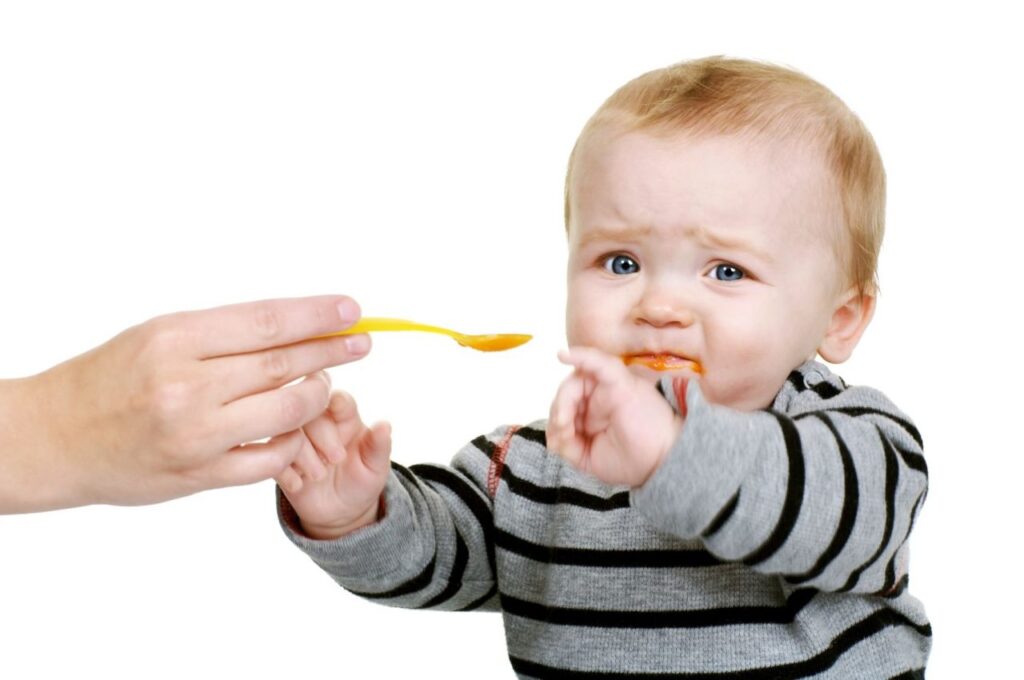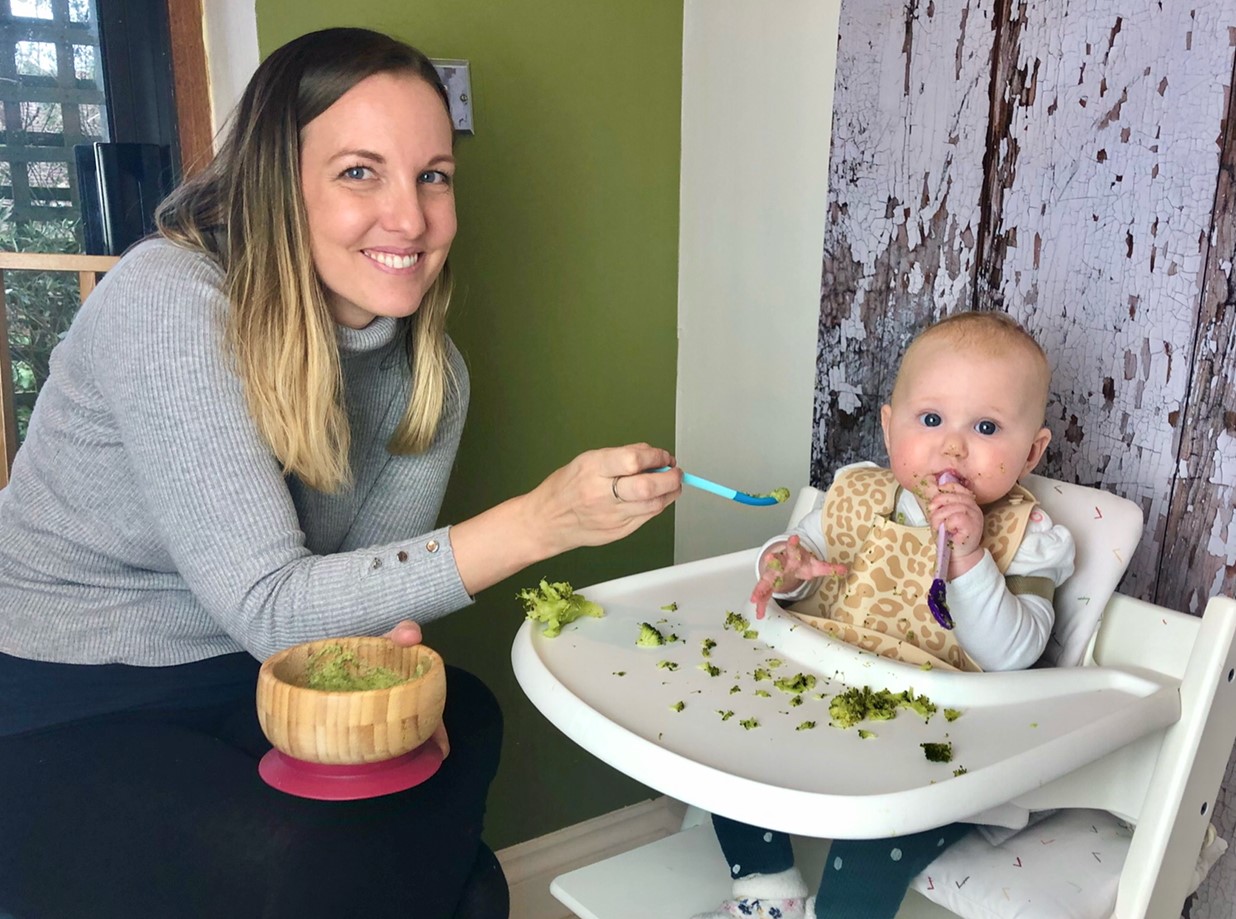Weaning a baby with reflux
For those of you who have been following me on Instagram for a while, you’ll know that Ada was diagnosed with reflux by a GP earlier on in her life. Unfortunately, after trying everything, we had to put her on meds, which made a real difference.
Luckily at around 5 months of age, we successfully weaned her off these and her reflux symptoms seemed to improve. I know this isn’t the case for many, many babies with reflux. So I wanted to share some information for any parents who are about to wean a reflux baby themselves.


Weaning a reflux baby
Because Ada’s symptoms had subsided somewhat when we started weaning at 6 months, we didn’t have much problem with her reflux getting worse. However, lots of people have asked if we were going to wean her early OR if there were any foods we should avoid when we start. I also had a few parents contact me and explain that cutting out some foods had really helped with their reflux symptoms.
As a result, I wanted to cover the evidence behind weaning a reflux baby in a bit more detail on my blog. Therefore, I enlisted the help of Charlotte Ockleton – Dietitian Lottie. Who, day to day in her work sees lots of babies with reflux who are about to start weaning.
Guidelines on weaning with reflux
Current guidance recommends starting complimentary feeding from 6 months of age. No earlier than 4 months of age (17 weeks). If starting before 6 months it is important to ensure your baby is developmentally ready. This is crucial for their safety, their overall development and also their nutritional needs. Starting solids too early can lead to nutritional deficiencies. It has also been associated with higher rates of infections.
This is of particular relevance to those with babies suffering from reflux. Currently, there is no robust evidence to support early (before 6 months) weaning to help alleviate symptoms of reflux in babies. Often, babies suffering from reflux are prescribed a thickener which helps their milk stay down. The theory that starting solids could help alleviate reflux is based on the texture of food typically being thicker than milk (particularly breast milk).
Whilst this is accurate, the reality is that the first few weeks of introducing solids is mainly about your baby exploring food (smells, tastes, textures). As opposed to eating large quantities of it. They are therefore still getting the majority of their nutrition from milk. It may also be that if your baby is having their milk thickened, the consistency is similar to your baby’s first purée consistencies anyway.
The other thing to consider with introducing solids to your baby with reflux, is that some foods may actually worsen their reflux symptoms. Don’t forget, once you start solids there are far more foods (variables) to consider in what’s causing a symptom flare up! Unfortunately there isn’t a set list of foods which worsen symptoms. It largely depends on your baby. So it’s always useful to keep a “food and symptom diary”. At the same time, in practice, I have seen and heard of a few babies with reflux improving once solids start.


Top tips
- Ignore the myths! Start solids when your baby is developmentally ready, like you would for a baby without reflux. Seek advice from your health visitor if you’re unsure.
- Remember; there is no guarantee that starting solids will help your baby’s reflux symptoms improve…
- If you are starting solids and your baby has reflux, keep a food and symptom diary. Remember to keep calm and try to enjoy the experience! Your baby will benefit from having a positive atmosphere when eating.
- Avoid changing too many things at once! For example, if you change their milk or change the amount of thickener added to their milk, or try and wean off a reflux medication all at the same time as starting solids, you won’t know what’s making their symptoms worse or better. Always speak to your GP or paediatrician before making changes with medication.
I hope this helps to make the evidence around weaning a baby with reflux a little clearer. Big thanks to Dietitian Lottie for writing this and for her expert advice.